Today we celebrate Heroes’ Day to commemorate the commitment, bravery and sacrifices exhibited and/or made by the men and women of NRM/A during the Bush War between 1981 and 1986.
They obviously had very strong motivation for undertaking such an extremely risky venture, wrought with too many uncertainties. Indeed, many never survived the bushes of Luweero.
Justification for the war
Whereas some fertile minds have claimed that Mr Museveni had always had his sights on State House, possibly from his teens, and was determined to get there by hook or crook, the ‘Sabalwanyi’(chief warrior) himself and his former ‘bushmen’ advanced the alleged rigging of the 1980 elections by Dr Milton Obote’s UPC party as the major reason or trigger.
Aside from the rigged elections, however, Mr Museveni has always expressed strong reservations about the leadership credentials – ideological clarity – of past Ugandan leaders and, indeed, most African leaders. He has always accused them of ideological bankruptcy, which he argues is characterised by mis-definition of problems.
The NRM/A super medicine
Thus, NRM, which President Museveni has described as unique, being nationalistic, patriotic, non-sectarian, non-chauvinistic, transformational, pan-Africanist, and very serious on purpose, came in with what it considered its super medicine for Uganda’s problems.
This was in the form a 10-Point Programme. Key among them included: (1) Restoration of democracy; (2) Ensuring security of persons and property; (3) Elimination of sectarianism and consolidating national unity; and, (4) Elimination of corruption.
Thus, motivated by his decisive victory against the past retrogressive, reactionary forces in January 1986, the young revolutionary leader, who was riding on a crest or popularity and goodwill, having delivered Ugandans from the state of chaos and anarchy that prevailed at the time, declared shortly after being sworn in January 29, 1986 that: “No one should think that what is happening today is a mere change of guard; it is a fundamental change in the politics of our country”.
He went on to assure Ugandans and the rest of the World that was closely watching the developments thus: “It is … our deliberate policy to ensure that we lift the quality of politics in our country. We are quite different from the previous people in power who encouraged evil instead of trying to fight it.”
Well, history is not short of revolutionaries that came promising heaven on earth but as soon as they captured power, fall prey to its corrupting influence.
Chairman Mao Tsetung, the revolutionary leader of China, cautioned viz: “With victory, certain moods may grow within the party – arrogance, the airs of self-styled hero, inertia and unwillingness to make progress, love of pleasure and distaste for continued hard living. With victory, the people will be grateful to us and the bourgeoisie will come forward to flatter us … the flattery of the bourgeoisie may conquer the weak willed in our ranks. There may be some … who were not conquered by enemies with guns and were worthy of the name of heroes … but who cannot withstand sugar-coated bullets; they will be defeated by sugar-coated bullets.”
Now, the question of the day is: Have our NRM heroes been able to resist the flattery of the bourgeoisie and withstand sugar-coated bullets?
My scope or terms of reference will be restricted to how true they have remained to the ideals they have preached from the beginning with specific emphasis on their bravery and commitment in the face of the aforementioned temptations – bourgeoisie flattery and sugar-coated bullets as Chairman Mao put it.
Election rigging ‘resisters’ turned ‘riggers’!
Perhaps, the very first test in this context relates to the reasons advanced by our NRM heroes for resorting to arms to settle political issues – the alleged rigging of the 1980 elections by Obote and his UPC.
Never mind that it was the DP that was supposed to have won those elections and not our ‘Sabalwanyi’ and his UPM, that only managed to win one seat in the 120 plus parliament. And, that feat was pulled off by Dr Crispus Kiyonga in Kasese. The people of Kiruhura, or some place thereabout, rejected ‘Sabalwanyi’ in favour of current Foreign Affairs minister Sam Kutesa.
That aside, what has been the record of our NRM heroes in terms of conducting credible elections and pulling off clean, uncontested wins? Well, we might all know that nearly all the last four elections have been seriously contested, with Mzee’s opponents, the principle ones of whom have been his former Bush War colleagues, going to court at least twice, alleging gross irregularities and massive rigging.
The courts concurred that there were serious irregularities and clear indications of rigging only that there wasn’t enough evidence to suggest that those irregularities and/or rigging was not substantive enough to alter the overall result. As for the 1980 elections we never had the opportunity to get to know such nitty-gritty.
Relevant to this discourse, however, is what motivates our former freedom fighters cum Bush War heroes, who went to the ‘bush’ because of rigging elections, to engage in the same practice in such a blatant and flagrant manner. Doubtless, it all has to do with the allure, comfort and trappings that go with political offices, more so, State House. Former Ugandan president, Godfrey Binaisa, QC, is quoted to have said, “Entebbe ewoma!” (The chair or throne is really sweet). Talk of sugar-coated bullets!
From freedom fighters to despots
The very first area of concern in the 10-Point Programme was restoration of democracy. At that 1986 swearing in ceremony, the NRM leader declared that: “The people of Africa – the people of Uganda – are entitled to democratic government. It is not a favour from any government.”
Well, democracy is generally recognised to mean government by the people’s genuine representatives as validated by their genuine and free consent. Genuine democracy has well known and generally recognised ingredients or means and ends.
In brief, these include: (1) government controlled by the people, that remains always accountable to the people; (2) protection of individual rights and freedoms which include freedoms and rights to/from life, liberty, conscience, free choice of work, assembly and association, expression and inhuman treatment; (3) good electoral laws; (4) genuine periodic elections; (5) an honest, competent and non-partisan electoral body; (6) regular terms of office fixed by law, among others; and, (7) separation of powers between the different arms of government.
Clearly, using such internationally recognised standards, the democratic credentials of our NRM heroes, who came assuring us that democratic government is not a favour from any regime, are very questionable. The tendency for the NRM in power has always been to create a semblance of democracy without practicing actual, meaningful democracy.
For one, the NRM leader-cum-‘chief hero’ conducts himself, and is treated by some of those around him, as if he is the alpha and omega of everything. He is above the law and above all institutions. He only accords them due regard when it suits him. Taking advantage of the NRM majority, Parliament effectively operates at the behest and pleasure of the President.
Whenever contentious issues are to be debated in Parliament, the President-cum-NRM chairperson summons the NRM MPs and via inducements or threats aligns them to his preferred positions. The views of their electorates do not matter.
In reality, NRM MPs are not accountable to their electorates but to the NRM chairperson / President. Consequently, whatever happens in Parliament is a mere formality; it is much more of a rehearsed circus. When Opposition MPs remain stubborn, Special Forces commandoes are brought in to batter sense into their reactionary heads!
Thus, even the cardinal principle of separation of powers in democratic governance is rendered idle. Sometimes, the President has gone to the extent of attempting to issue instructions to the Judiciary. We saw this not so long ago over the matter of bail. Memories of the invasion of the High Court by the then so-called Black Mambas to re-arrest suspects released by the court may still be fresh in many peoples’ minds! But, somehow, the rigid and technical nature of the Judiciary has insulated it from interference by the Executive.
Instead of being fought and eliminated or reduced, undemocratic tendencies have instead been progressively building up. The political playing field has been seriously tilted in favour of the incumbent. Deliberate mechanisms have been put in place and actions taken to sabotage Opposition elements from freely, fairly and effectively putting up a credible challenge. This has ranged from laws such as the Public Order and Management Act (POMA), that seriously curtail their ability to organise and assemble, to direct harassment by State security.
As we have witnessed, in the NRM party itself it has gone to the extent of our former freedom fighters resorting to the extremely undemocratic and, even, illegal schemes of ring-fencing top party leadership positions in order to block any potential serious challenger(s).
This, notwithstanding the fact that such actions not only go against the Constitution but the party’s own rules! Could this have been imaginable in 1986? Bourgeoisie flattery and sugar-coated bullets at work!
Calls by the Opposition, civil society actors and development partners to reform our electoral laws and to have an electoral body that is seen to be free, fair and independent have been resisted by the NRM.
Overstay in power: Evil or advantage?
Way back in 1986, President Museveni is reported to have diagnosed overstaying in power as a major problem of Uganda and Africa as a whole.
He is quoted as saying: “The problem of Africa in general and Uganda in particular is not the people, but leaders who want to overstay in power.” Then sometime around 2012, he was quoted as saying: “Some people think that being in government for a long time is a bad thing. But the more you stay, the more you learn. I am now an expert in governance.”
Personally, I am not sure as to what motivated this radical transformation. Whether it is the wisdom that comes with experience and age, or the ‘entebbe ewoma’ syndrome! Or, could our visionary also have been suffering from some kind of ‘ideological obscurantism’ when he mentioned the original statement in 1986? Or, is it as a result of becoming blind, insensitive and removed from reality as one stays long and longer in power?
But then, from his own statements, ‘Sabalwanyi’ also seems to have looked around him and found no one of substance and worthy fitting in his shoes. He has told us a couple of times that he sees no one with a ‘vision’ to whom he can pass the baton.
Apparently, he is not alone in this line of thinking. Not too long ago Kampala minister Beti Kamya is quoted to have said that she finds President Museveni to be more intelligent than his entire Cabinet combined! Meanwhile, while reacting to a call on President Museveni by NRM youth leaders in 2011 for him to desist from handling petty issues and leave them to line ministries and government agencies, then Presidential Press Secretary Tamale Mirundi reasoned that, “our ministers are cowards and lack confidence to handle petty issues”. So, if they lack confidence to handle petty issues, then logically they cannot handle the bigger issues! Isn’t this what Chairman Mao would have categorised as ‘bourgeoisie flattery’?
The cancer of corruption:
Toughest sugar-coated bullet
Perhaps, the second most trying test for our former freedom fighters, after the temptation of hanging on to power, is the question of corruption.
Whereas, President Museveni and his allies have vigorously campaigned against it right from their UPM days, on the ground there is little to show for the tough stance and all efforts dedicated to fighting it. Concerns have even been expressed by eminent persons and/or authorities that corruption is distorting the economy.
Apart from the various corruption scandals that have hit headlines over the last three decades and the censuring of some ministers, including Bush War heroes, statements made by some top NRM government leaders are quite telling as to how our heroes have been really unable to resist sugar-coated bullets.
In the course of 2005, then vice president Gilbert Bukenya, who happened to be the target of a seemingly improperly handled investigation by the Inspectorate of Government (IGG), ran to the media, crying foul, arguing that he was the target of a witch-hunt by colleagues from within the government.
He effectively blew the whistle that they were people within the government who had amassed questionable wealth and invested it in Kampala’s upscale suburbs of Nakasero, Bugolobi and Kololo. He threatened to expose them if he continued being unfairly targeted.
Intriguingly, while reacting to the VPs grievances, the IGG is reported to have said that the then Security minister Betty Akech, refused to cooperate with her staff, who had followed up on her wealth, quarrelling thus: “I am not a thief. There are many thieves in government, go and look at those one.” That is just how ugly it is!
Sectarianism and NRM double standards
Sectarianism is one of the ssm is one of the subjects that President Museveni has never tired criticising past regimes and political groups on.
He has often reasoned, and obviously correctly so, that basing political identity on religion or tribe is very wrong. He has vigorously campaigned against sectarianism and sectarian tendencies. His lieutenants have also always sung the same song.
But then, whereas the anti-sectarian talk has been persistent and consistent, evidence on the grounds do not show that they have walked the talk. Generally, over the last three plus decades of NRM, the composition of Cabinet, top echelons of the armed services and security agencies, heads of key parastatals, Foreign Service appointments, and, indeed, most other ‘lucrative’ jobs, have never exhibited a national character.
They have always been tilted in favour of the western region. It is like our former freedom fighters-cum-Bush War heroes are always struggling to pull things homewards. Concerns have also ever come up about elements from western Ugandan and Banyarwanda who might be based elsewhere, especially Buganda, going out of the way to deliberately sabotage individuals from other areas.
Quite ironically, whoever comes out to complain about this unfair practice is the one labelled sectarian. Those practicing the same simply get away with it.
Power corrupts and absolute power corrupts absolutely
Whoever said that power corrupts and absolute power corrupts absolutely couldn’t have been more spot on. There is someone whom I don’t remember who said something like ‘If our Bush War heroes of 1986 met the ones of today, they would hardly recognise each other; they would, possibly, engage in a serious confrontation’.
Evidently, it all boils down to the corrupting influence of power. Matters are, of course, not helped by ‘bourgeoisie flattery’ and ‘sugar-coated bullets’, the temptations of which increase the higher up the political ladder one goes.
And it seems to get worse as individuals overstay. Unfortunately, even the laws that are or were put in place during early days to check against these temptations and tendencies are fiddled with to suit the interests and whims of those in power. Lord have mercy on us!
Alpha & omega
Whenever contentious issues are to be debated in Parliament, the President-cum-NRM chairperson summons the NRM MPs and via inducements or threats aligns them to his preferred positions. The views of their electorates do not matter.
In reality, NRM MPs are not accountable to their electorates but to the NRM chairperson / President. Consequently, whatever happens in Parliament is a mere formality; it is much more of a rehearsed circus.
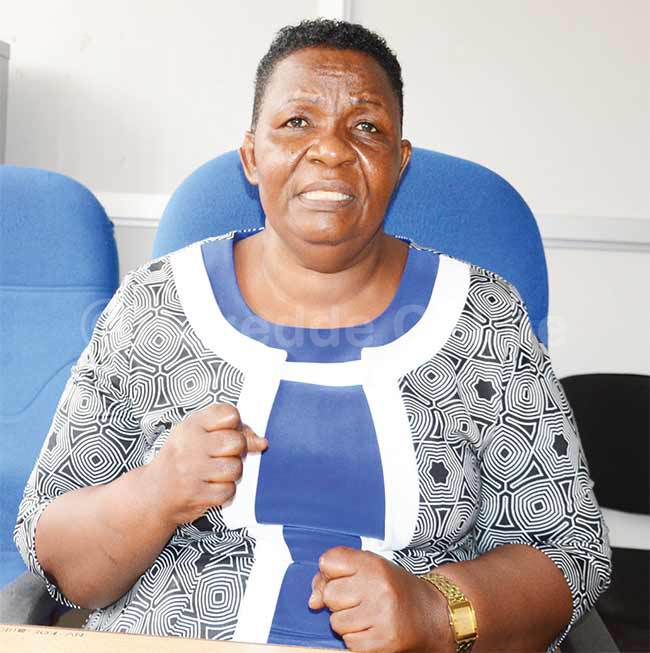
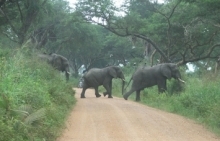
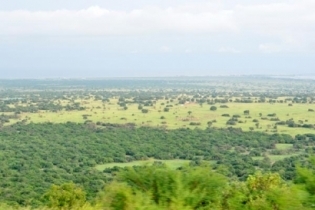

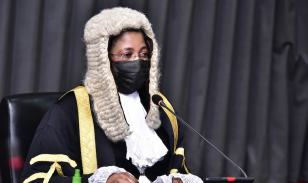




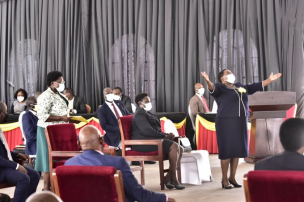
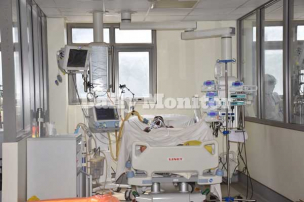
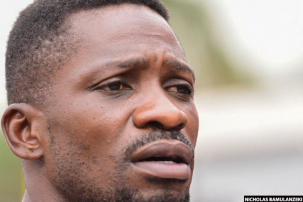
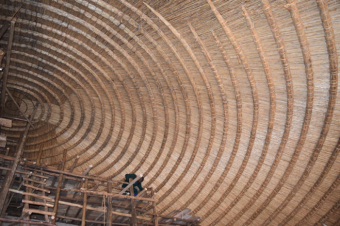 Inside the largest grass made hut in the world, Uganda.
Inside the largest grass made hut in the world, Uganda.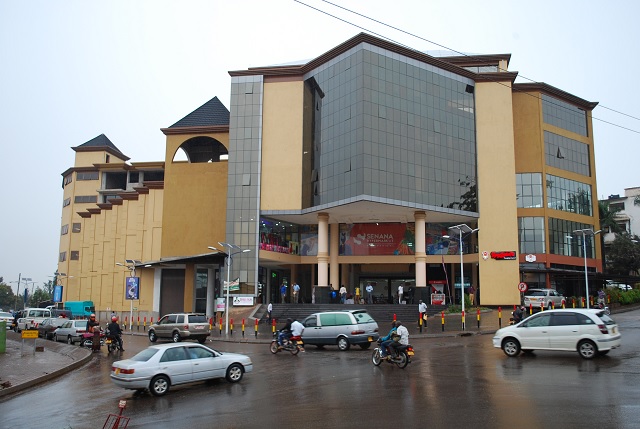
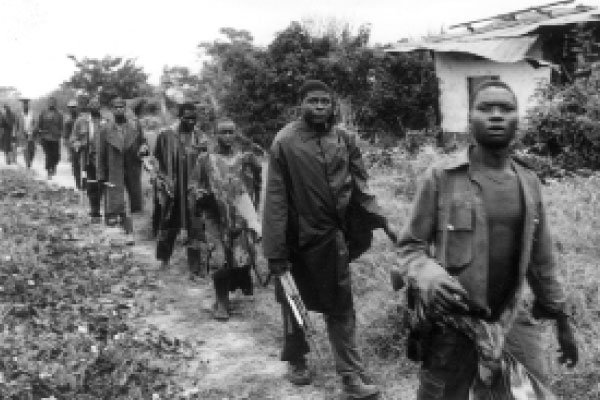
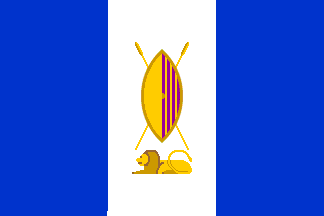
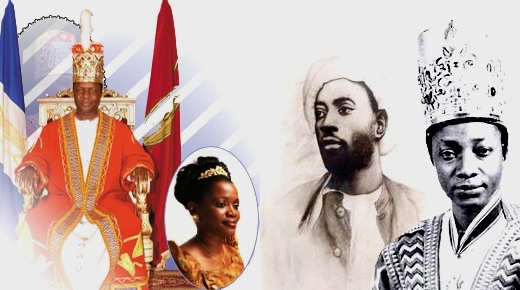



What one understands from this article is that the management of this parliament have of recent paid lots of money to have 3000 invited guests tested 3 times for COVID before they came near the President of Uganda. How much cost is each COVID19 test, this article does not verify.
And 100 of these guests were COVID19 positive and have already recovered nicely. Again the total expensive cost of treating them at the going rate of 2/3 million shillings per day in the hospitals of Uganda, this article does not verify.
To scale down the whole activities of government work, such an action activates government emergency laws and order for the next 6 months.
The new self elected government must resign so that a committee is put in place to guide the country through this pandemic emergency period.
There are so many dying people and we all ask God to help us all to overcome this pandemic. So help us God!